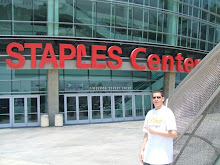Insight is not an act of remembrance, the continuation of memory. Insight is like a flash of light. You see with absolute clarity, all the complications, the consequences, the intricacies. Then this very insight is action, complete. In that there are no regrets, no looking back, no sense of being weighed down, no discrimination. This is pure, clear insight - perception without any shadow of doubt. Most of us begin with certainty and as we grow older the certainty changes to uncertainty and we die with uncertainty. But if one begins with uncertainty, doubting, questioning, asking demanding, with real doubt about man's behaviour, about all the religious rituals and their images and their symbols, then out of that doubt comes the clarity of certainty.
"If you begin to understand what you are without trying to change it, then what you are undergoes a transformation."
" ...In our relationship with children and young people, we are not dealing with mechanical devices that can be quickly repaired, but with living beings who are impressionable, volatile, sensitive, afraid, affectionate; and to deal with them we have to have great understanding, the strength of patience and love... "
"Do not think about yourself, but be aware of the thought, emotion, or action that makes you think of yourself."
"Why do you want to read others´ books when there is the book of yourself?"
For the total development of the human being, solitude as a means of cultivating sensitivity becomes a necessity. One has to know what it means to be alone, what it is to meditate, what it is to die; and the implications of solitude, of meditation, of death, can be known only by seeking them out. These implications cannot be taught, they must be learnt. One can indicate, but learning by what is indicated is not the experiencing of solitude or meditation. To experience what is solitude and what is meditation, one must be in in a state of inquiry; only a mind that is in a state of inquiry is capable of learning. But when inquiry is suppressed by previous knowledge, or by the authority and experience of another, then learning becomes mere imitation, and imitation causes a human being to repeat what is learnt without experiencing it.
"The mind has to be empty to see clearly."
"If you lose touch with nature you lose touch with humanity. If there's no relationship with nature then you become a killer; then you kill baby seals, whales, dolphins, and man either for gain, for "sport," for food, or for knowledge. Then nature is frightened of you, withdrawing its beauty. You may take long walks in the woods or camp in lovely places but you are a killer and so lose their friendship. You probably are not related to anything to your wife or your husband "
"Truth is more in the process than in the result."
"Pain itself destroys pain. Suffering itself frees man from suffering."
"Sorrow is not in death but in loneliness, and conflict comes when you seek consolation, forgetfullness, explanations, and illusions."
.. Human beings, each one, right through the world, go through great agonies, the more sensitive, the more alert, the more observant, the greater the suffering, the anxiety, the extraordinary sense of insoluble problems. .. And the point is, is it possible for the mind to be totally free from suffering and yet not become indifferent, callous, irresponsible, but to have that passion, the intensity, the energy that freedom brings, freedom from suffering.
The fact is there is nothing that you can trust; and that is a terrible fact, whether you like it or not. Psychologically there is nothing in the world, that you can put your faith, your trust, or your belief in. Neither your gods, nor your science can save you, can bring you psychological certainty; and you have to accept that you can trust in absolutely nothing. That is a scientific fact, as well as a psychological fact. Because, your leaders – religious and political – and your books – sacred and profane – have all failed, and you are still confused, in misery, in conflict. So, that is an absolute, undeniable fact.
From these prejudices there arises conflict, transient joys and suffering. But we are unconscious of this, unconscious that we are slaves to certain forms of tradition, to social and political environment, to false values.
To me, then, true criticism consists in trying to find out the intrinsic worth of the thing itself, and not in attributing a quality to that thing. You attribute a quality to an environment, to an experience, only when you want to derive something from it, when you want to gain or to have power or happiness. Now this destroys true criticism. Your desire is perverted through attributing values, and therefore you cannot see clearly. Instead of trying to see the flower in its original and entire beauty, you look at it through coloured glasses, and therefore you can never see it as it is.
You are Christians; find out what is true and false in Christianity - and you will then find out what is true. Find out what is true and false in your environment with all its oppressions and cruelties, and then you will find out what is true. Why do you want philosophies?
So let us decide whether you want a shelter, a safety zone, which will no longer yield conflict, whether you want to escape from the present conflict to enter a condition in which there shall be no conflict; or whether you are unaware, unconscious of this conflict in which you exist. If you are unconscious of the conflict, that is, the battle that is taking place between that self and the environment, if you are unconscious of that battle, then why do you seek further remedies? Remain unconscious.
Friday, September 26, 2008
Subscribe to:
Post Comments (Atom)

No comments:
Post a Comment